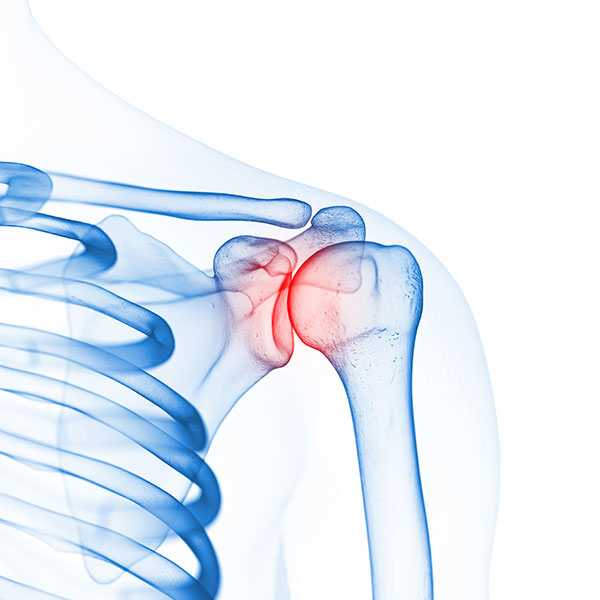Physiotherapy Advice

Shoulder Arthritis
October 12 is World Arthritis Day. Osteoarthritis (OA) is a type of arthritis affecting nearly 1 in 6 Canadians. OA typically results from joint overuse, traumatic injury, and poor movement patterns. It begins with small cracks in the cartilage layers that protect the boney surfaces within a joint. Pain progresses as the cartilage breaks down and fluid accumulates under the tissue. Eventually the cartilage layers completely erode, allowing the boney surfaces to rub against each other. Progressive joint damage leads to changes in other joint components: bone spurs (osteophytes) develop; the joint capsule and ligaments stiffen; and the involved muscles weaken. This combination of osteophytes, weakness, and stiffness further limits joint mobility. This, in turn, causes more damage to the cartilage and bone, resulting in a proverbial vicious cycle.
Most people think of the hands, knees, and hips when considering OA. Although less common, the pain and loss of movement with shoulder OA is similarly debilitating. Typical OA shoulder pain begins during movements like reaching to comb or wash your hair and reaching back for your seatbelt. This pain usually presents as a deep ache at the back or the top of the shoulder. As the disease progresses, pain may become constant and may even prevent you from sleeping. Simple tasks such as putting away your dishes and dressing yourself may become prohibitively difficult and painful.
Physiotherapy offers effective relief for those with shoulder OA. It is widely recommended as a first line non-surgical treatment for people with this condition. Proper exercise, education, and activity modification can lessen the pain of shoulder OA. Physiotherapy can also help slow the progress of the disease by working to improve joint flexibility and strength. With a thorough assessment of your movement patterns, range of motion, strength, and function, your physiotherapist can help you to develop an effective program. Initial interventions may include manual therapy, activity modification, education, and modalities to decrease pain and increase shoulder mobility. As your pain lessens, your physiotherapist may introduce exercises to further improve range of motion, strength, and posture.
Your physiotherapists at Keystone Physiotherapy are highly skilled in treating the pain and minimizing the loss of function experienced with arthritis. Call us today and maximize your quality of life.
Hours of Operation:
Mon - Thurs: 8:00am - 8:30pm
Fri: 8:00am - 3:30pm
Sat - Sun: Closed
327 St George St, Suite 100
Moncton, NB E1C 1W8
Phone: (506) 858-8644
Email: keystonephysiotherapymoncton@gmail.com
